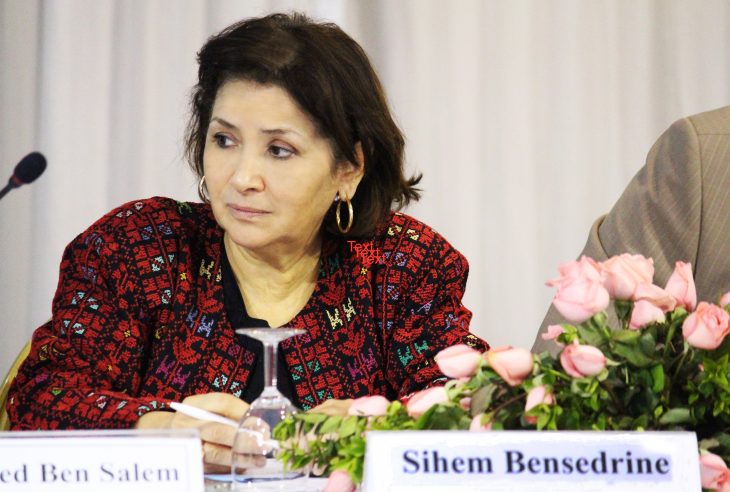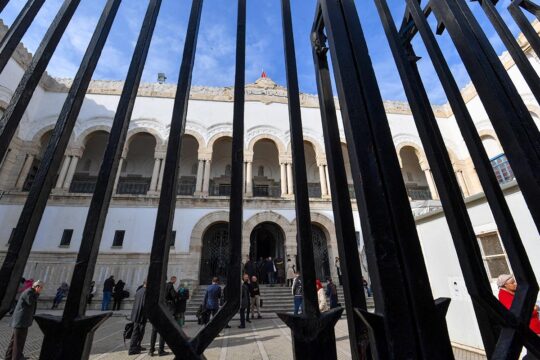Tunisia’s new Truth Commission is now sorting victims’ testimonies on more than 60 years of dictatorship, which it started gathering last December.
"Nearly 12,000 complaints have already landed on the desks of the Truth and Dignity Commission,” says Sihem Ben Sedrine, chairwoman of the Commission (Instance Vérité et Dignité or IVD, in French). “They are all linked to dramatic events that occurred in Tunisia between July 1955 and December 2013, including the persecution of the Left in the 1960s and ‘70s, the crisis between authorities and the union movement in January 1978, the bread riots of January 1984, the repercussions of the Gulf War* in 1990 and 1991 and the police firing of shotgun pellets in Siliana in November 2012*.”
This independent truth commission, officially inaugurated on June 9, 2014, has 15 members, of whom three have resigned in the past few months. Its mandate under the law is four years, renewable once for one year only. Its tasks include conducting investigations into human rights violations committed by the State during nearly 60 years of authoritarian rule.
The Commission started receiving victims last December, signalling that it is now operational after months setting up its administrative structure, opening regional bureaux, recruiting 30 investigators and drawing up its manual on statement taking. This manual takes the shape of a 50-page form the Commission statement takers fill in at the first hearing of a complainant in order to record all the elements of their testimony. Each case has a unique code which identifies the victim in the Commission’s computer data base.
“Determining patterns of violations”
On April 13, the Commission started sorting the case files, with the aim of refining its research tools and trying out its content analysis methodology. It is currently working on a sample of 2,300 testimonies that have been scrutinized by thirty investigators, along with lawyers and sociologists, all of whom received prior training on transitional justice.
“On the basis of the files we’ve received, we’re seeking to determine the patterns of violations, the contexts in which they took place, the profile of the victims, the profile of the perpetrators and also the final aspirations of the victims, such as reparations, truth telling, mediation or reconciliation,” explains Laaroussi Amri, a university professor recruited by the Commission to head its research and analysis department.
After a special hearing of the victims, the different requests will then be distributed to the five committees that have recently been set up at the Commission: responsibility; research and investigation; reparations; mediation; and reconciliation.
“Our goal is to refer only 5% of our cases to the Special Chambers,” says Sihem Ben Sedrine. “Because what would transitional justice have achieved if all the complaints of violations were rejected by the courts.
(Footnotes:)
*When the Gulf War broke out in 1990, Tunisia repatriated all its citizens, numbering thousands, who were working in Iraq and promised to compensate them. Most of them have not received any compensation.
*On November 27, 2012, in Siliana (127 km west of Tunis), thousands of people held a demonstration demanding development projects and the departure of the Islamist governor, who was accused of practising partisan policies. The police responded by firing shotgun pellets, injuring some 200 people, of whom some are now blind.






